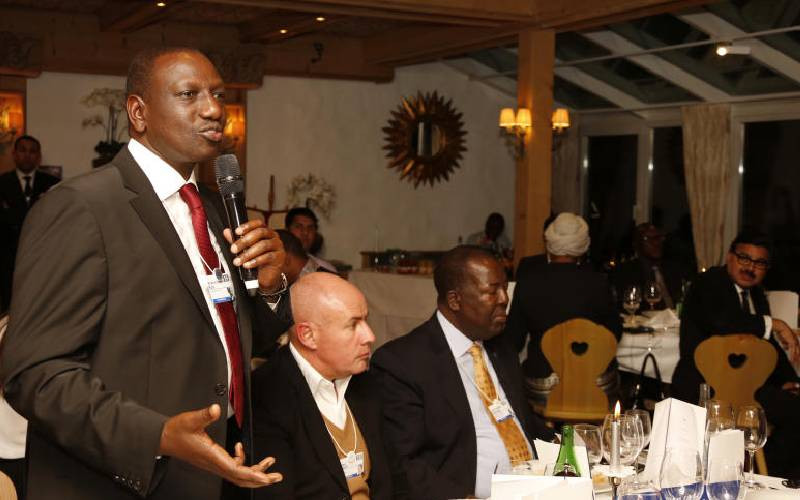President William Ruto’s onslaught against what he sees as unfair assessment by global credit rating agencies has received backing from the African Union (AU) and United Nations (UN) agencies.
President Ruto recently faulted the credit agencies while defending his government’s intention to buy back part of the $2 billion (Sh282 billion) Eurobond ahead of the June 2024 maturity date.
The plan had sparked negative sentiments with global ratings agency Moody’s equating it to a default.
On Friday, the African Peer Review Mechanism (APRM) part of the New Partnership for Africa’s Development (NEPAD) said it views Moody’s comment as “highly speculative, damaging and ignores the ‘voluntary’ nature of the proposed bond buyback programme, which allows investors the right not to participate.”
“The APRM further views Moody’s speculative comments on Kenya’s default event as, in effect, a preemptive rating action and equates it to a ‘premature release of a credit rating to the public’,” said APRM in a statement.
Research report
“In view of these continuing impromptu pessimistic and negative commentaries by rating analysts that are neither linked to any rating action nor in-depth research report, the APRM calls on African Network of National Regulators of Rating Agencies to institute appropriate regulatory measures that ensure proper conduct of credit rating business.”
APRM comments came as a separate report by the UN Economic Commission for Africa (UNECA) renewed calls for the overhaul of the global credit market.
The report said despite positive economic projections, Sovereign Credit ratings in Africa are getting worse.
“There is an urgent need to reform the global financial architecture to level the playing field for developing countries,” said acting Executive Secretary of the UN Economic Commission for Africa Antonio Pedro earlier.
President Ruto had defended the Treasury plan while ruling out fears of a possible default.
“There are people who are tools of colonialists called credit rating agencies saying we will probably default on the Eurobond. They are criticising our plan to buy back this Eurobond debt but we will continue with it,” said Ruto.
“How is the buyback plan a problem?”
Bloomberg earlier reported that Kenya’s Eurobonds had plunged after the statement by Moody’s.
“Redeeming the bonds at a price below par value would constitute an economic loss to investors,” it quoted a Moody’s’ official saying.
David Rogovic, a vice president and senior credit officer at Moody’s, was according to Bloomberg reacting to Ruto’s plan, announced in June, to buy back half of the Eurobonds before the end of this year. Treasury Cabinet Secretary Njuguna Ndung’u said earlier regional countries like Kenya are often adjudged wrongly by credit rating systems and agencies.
The global credit rating system is dominated by three major US-based credit agencies – Fitch Ratings, Moody’s Investors Service and Standard & Poor’s.
The big three agencies have recently issued assessments on Kenya’s credit rating.
“We are all coordinated and, should I say, harassed within the same framework without actually any resort to what needs to be done,” says Prof Ndung’u, alluding to the gaps in the global credit rating system.
“Why do MDAs (Multilateral Development Agencies) follow those ratings? Are they giving them a tick?” he posed.
The UN Economic Commission for Africa has been pushing for reforms in the global credit rating system as part of a complete overhaul of the global financial architecture.
African governments have often claimed that funds are loaned to regional countries at a higher rate of interest than other comparable countries.
Their creditworthiness also hinges on the decisions of opaque credit ratings agencies, some countries claim.
Improving and maintaining good sovereign ratings is seen as essential for managing public debt and attracting investors.
A rating downgrade is significant because it may influence a country’s cost of borrowing in the international financial markets.
Maturing debt
Rising borrowing costs and tougher market conditions could mean the government will struggle to refinance upcoming maturing debt, the World Bank had earlier said.
This is against a backdrop of the weaker credit rating by global rating agencies, signalling taxpayers will have to fork out more to service the planned loan amid tighter global market conditions.
Global ratings agency Fitch last month also downgraded Kenya’s credit rating outlook, dimming the country’s chances of tapping cheap credit on the international market.




















Discussion about this post